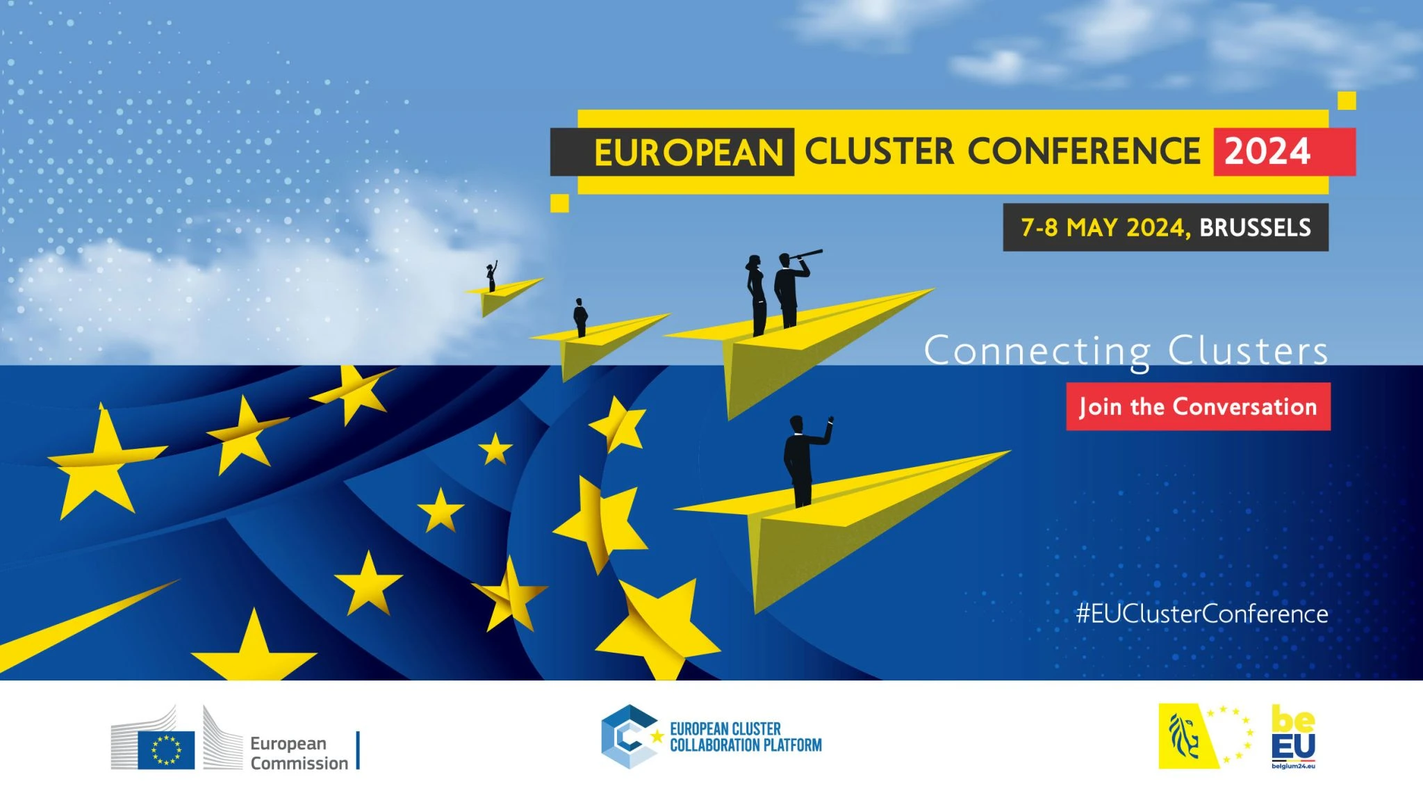The EU Declaration on Cycling and the increasing prominence of cycling in various EU support and funding programmes drives our work at CIE, but we are also well aware that EU policies and successful funding application often seem like a world away from the day-to-day reality of running a successful cycling company. There is a clear need to build bridges between funding and support mechanisms and cycling companies operating in Europe.
This consideration has drawn us towards examining the topic of ‘industrial clusters’ in more detail. Our Industry Manager Jacques Lovell took part in the European Cluster Conference 2024 in Brussels to have a better understanding of how clusters are being used in other industries to support innovation and competitiveness, and how clusters could play a role for the European cycling industry.
There are currently only a handful of clusters working with cycling companies. The most developed and successful model in the EU is the Portugal Bike Value cluster of Portugal and its existence is a frequently stated as a reason why Portugal is the leading bicycle manufacturer in Europe. Meanwhile the Taichung-based Cycling Health Tech Industry R&D Centre (CHC), which has recently joined CIE as an associate member, plays a key role stimulating the Taiwanese cycling industry.
In France, several automotive clusters have opened their doors to cycling companies and two dedicated cycling clusters have been established. There is also growing interest in several other EU regions for establishing clusters dedicated to clean mobility.
Clusters typically bring together start-ups and SMEs active in the same value chain and same region to collaborate. While there is no set formula as to how a cluster is established or how it is run – this depends on how government and support schemes are organised at a regional or national level - they tend to develop comparable services targeting SMEs and start-ups, geared towards accelerating innovation and competitiveness:
They play a pivotal role in managing and redistributing innovation funding provided by the EU, national or regional governments. SMEs and start-ups working with clusters have higher chances of accessing public funding and support programmes, with clusters helping companies formulate funding applications, identifying consortium partners and providing legal advice.
Facilitating collaboration and fostering trust among companies working within the same clusters and identifying potential partners and suppliers in the EU.
Providing support for export and internationalisation, as well as IP support and patent registration.
Engaging with academia on R&D needs and skills’ gaps, and facilitating lifelong learning and reskilling.
Communicating about the needs of start-ups and SMEs to regional and national government.
Giving start-ups visibility and support to engage with investors and venture capital firms.
The potential clusters offer to enhance competitiveness, innovation and access to policy support has become a key area of focus for CIE’s Cycling Innovation Network expert group. Representatives of clusters organisations are now regularly invited to exchange about common challenges, present funding opportunities, engage with start-ups and SMEs and devise a toolkit to overcome the challenges establishing clusters and facilitate cycling industry involvement.
A 30-minute panel session on the role clusters can play for the cycling industry will also take place on EUROBIKE Pink Stage at 12 on Thursday 4 July. We would warmly recommend this session to companies and local administration representatives who are keen to accelerate collaboration, innovation and access to policy support for cycling SMEs and start-ups.
Share on Linkedin Share on Facebook Share on Twitter Subscribe to our newsletter